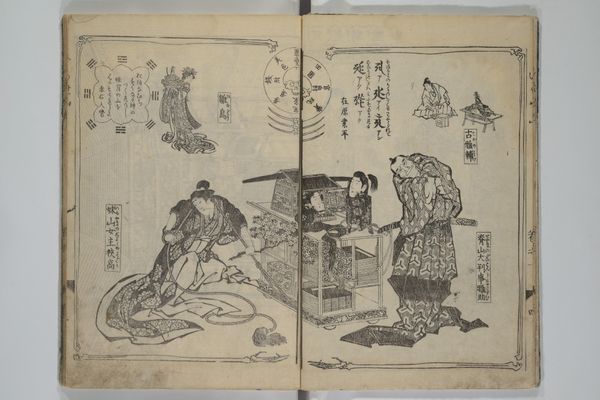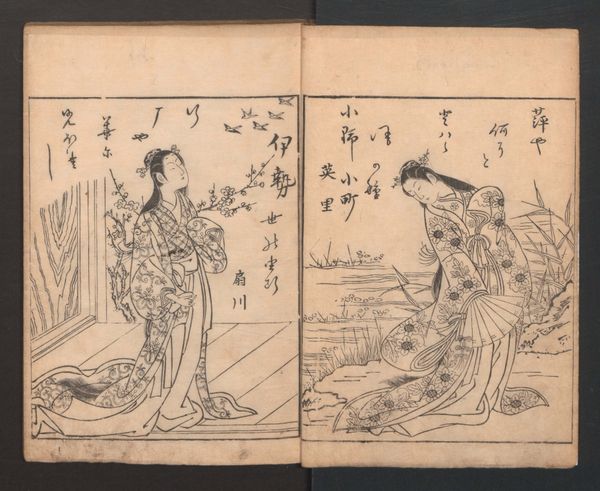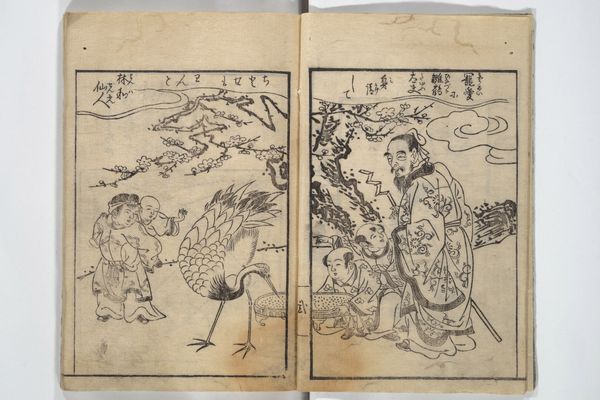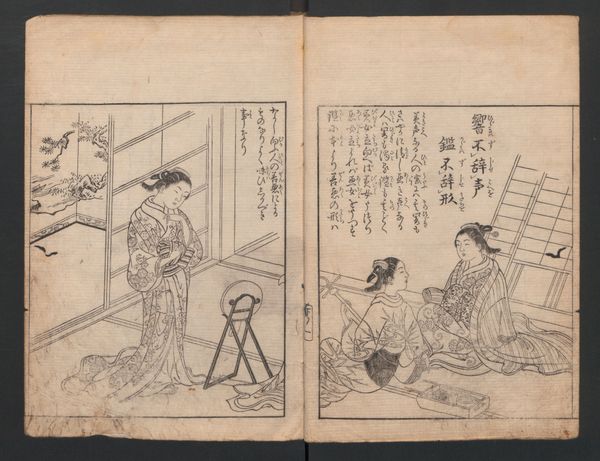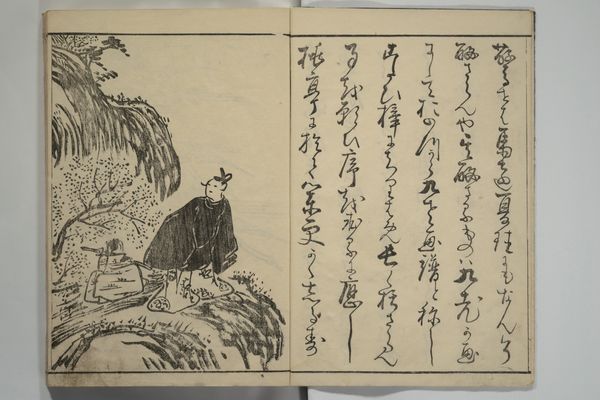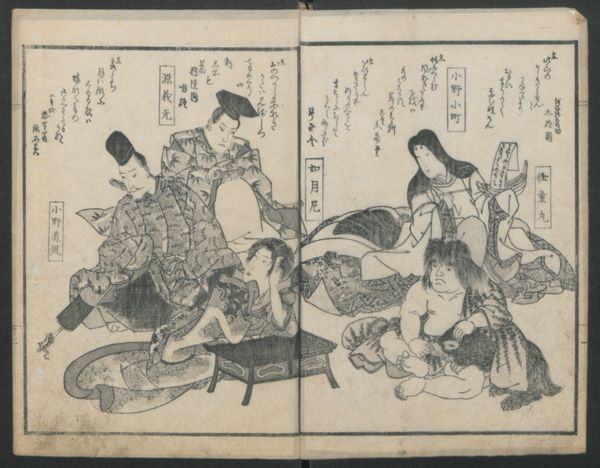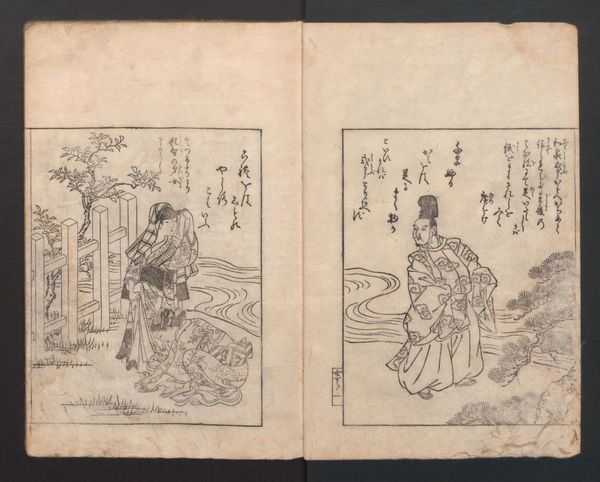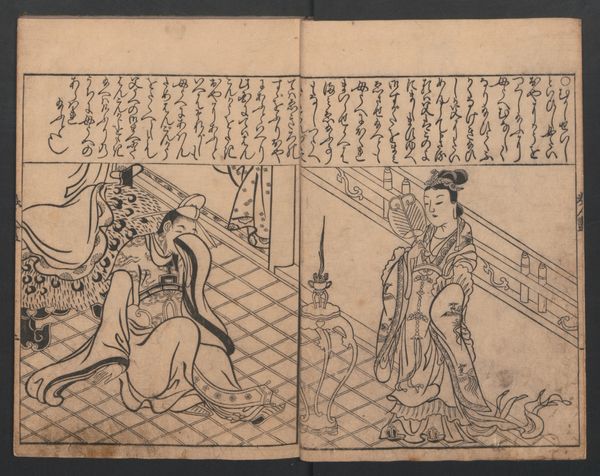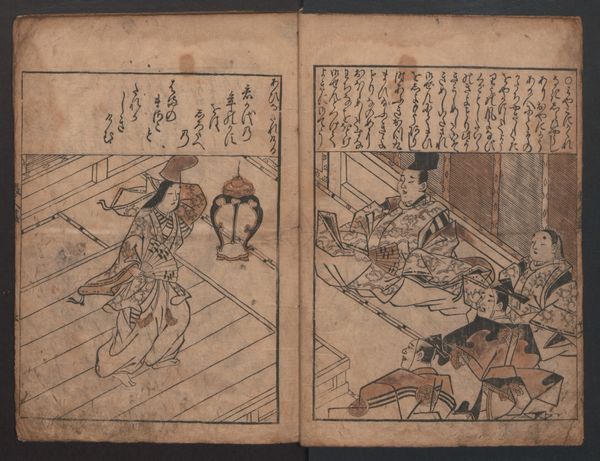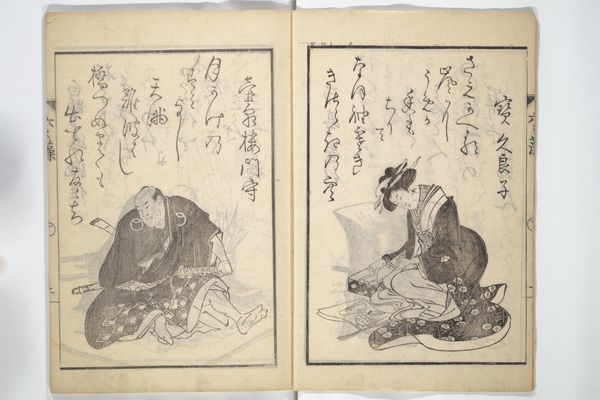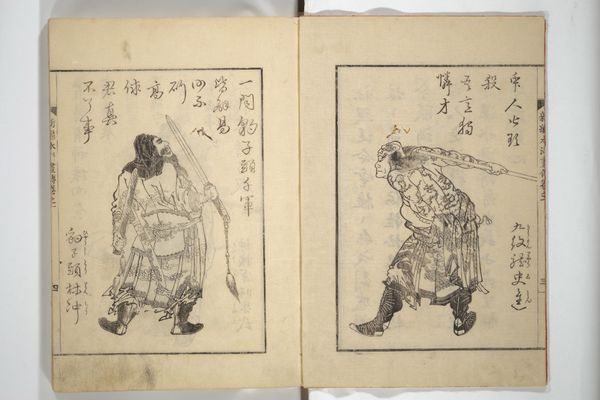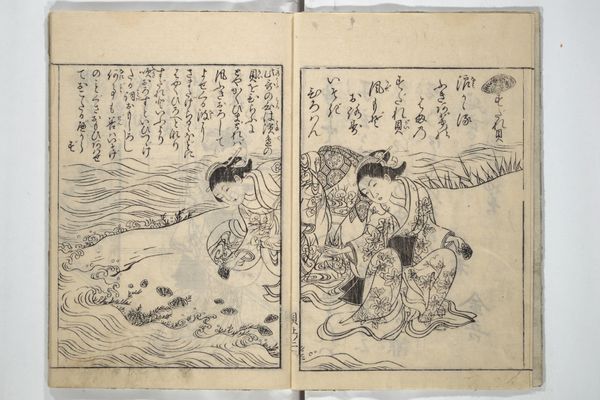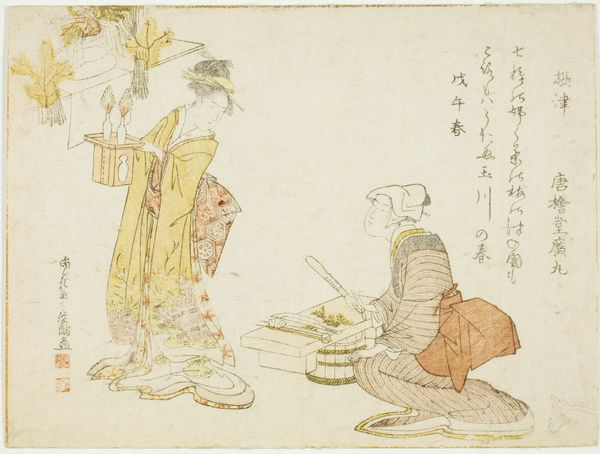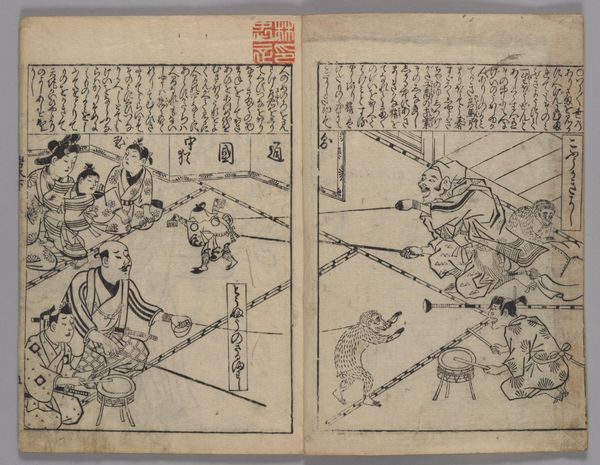
An Illustrated Mirror of Falconry c. 1863 - 1868
0:00
0:00
drawing, ink
#
drawing
#
ink drawing
#
narrative-art
#
pen drawing
#
pen illustration
#
pen sketch
#
book
#
asian-art
#
ukiyo-e
#
japan
#
figuration
#
personal sketchbook
#
ink
#
ink drawing experimentation
#
pen-ink sketch
#
pen work
#
sketchbook drawing
#
sketchbook art
#
calligraphy
Dimensions: 9 × 6 1/4 in. (22.86 × 15.88 cm) (chūbon)
Copyright: Public Domain
Editor: This is a page from “An Illustrated Mirror of Falconry,” made with ink around 1863-1868 by Kawanabe Kyōsai. It’s incredible! So sparse, almost like a quick memory jotted down. I'm curious, what stories do you think the images and accompanying text might tell? Curator: The falcon itself carries millennia of cultural baggage. In many cultures, particularly those of nomadic or warrior traditions, it symbolizes nobility, skill, even spiritual ascension. Does the relationship between the man and bird reveal a certain hierarchy, or perhaps even a shared spirit, a bond forged in the hunt? Editor: I didn't even think of that! The falcon being such a prominent feature in both pages... It definitely elevates it beyond just a drawing of a man with his bird. But what about the act of falconry itself? Does that contribute any symbolism here? Curator: Absolutely. Consider falconry's disciplined control, the deep knowledge of nature it requires, the patience to form a partnership across species. This wasn't simply sport; it reflected virtues, social status, an intimate connection with the natural order. Do the individual poses, then, speak to a distinct stage in this 'relationship', perhaps contemplation or readiness? Editor: Hmm, I see what you mean. The falconer on the right almost looks contemplative, like he’s waiting... or watching. While the other appears ready for action. It's almost as if they embody different aspects of this ancient tradition. Thanks for that, it adds so much more depth to what seemed like a simple sketch. Curator: Indeed, these images hold a cultural echo. Hopefully this experience shows how understanding these ancient symbolic frameworks transforms how we perceive art across time.
Comments
No comments
Be the first to comment and join the conversation on the ultimate creative platform.
